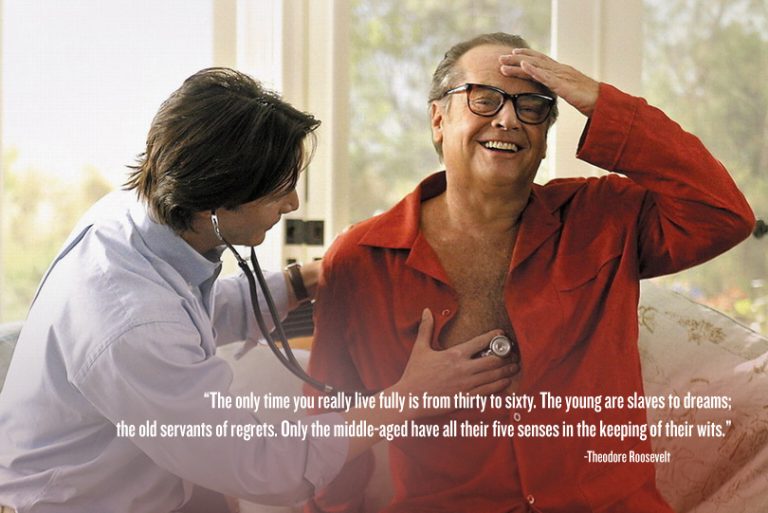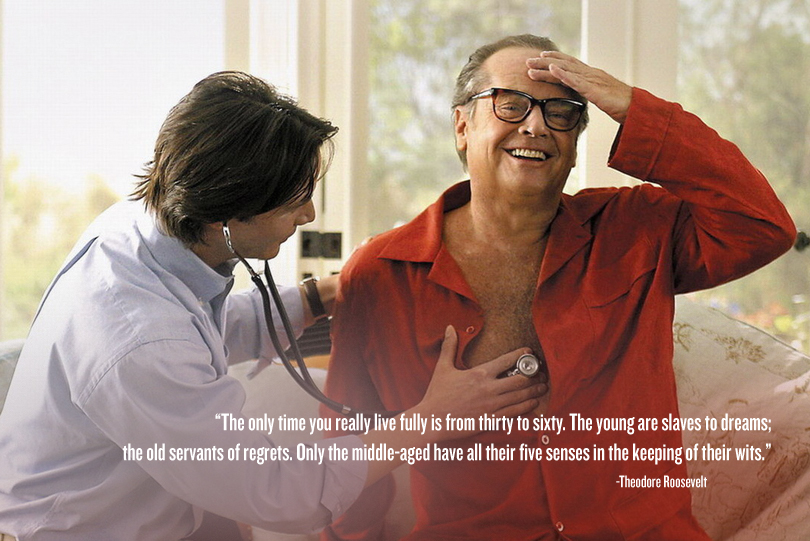Scientific American recently published a terrific article which takes a comprehensive look at the psychiatric phenomenon known as the “midlife crisis“. They first begin the piece trying to pinpoint the approximate age window the condition appears most likely to strike. According to a large Swiss study, the most likely bracket seems to be 35-53. SA admits this age range is of little importance, and the main body of their feature focuses on the psychological changes that manifest during a midlife crisis, and secondly: does it even exist as a scientifically valid concept? The following are some excerpts from the article entitled “Half Dead: Men And The Midlife Crisis”:
… According to him, the midlife crisis is such a crisis that many great artists and thinkers don’t even survive it. “I had the impression,” explains Jacques, “that the age of 37 seemed to figure prominently in the death of individuals in this category.” So he decided to crunch the numbers with a “random sample” of 310 such geniuses and, indeed, he discovered that a considerable number of these formidable talents—including Mozart, Raphael, Chopin, Rimbaud, Purcell, and Baudelaire—succumbed to some kind of tragic fate or another and drew their last breaths between the ages of 35 and 39. “The closer one keeps to genius in the sample,” Jacques observes, “the more striking and clear-cut is this spiking of the death rate in midlife.”
Yet for those of you out there still on a golden path to glory—and how many remain of Kundera’s famed immortals it’s impossible to say—the good news is that an early death is by no means inevitable. Basically, argues Jacques, around the age of 35, genius can go in one of three directions. If you’re like that last batch of folks, you either die, literally, or else you perish metaphorically, having exhausted your potential early on in a sort of frenzied, magnificent chaos, unable to create anything approximating your former genius. The second type of individual, however, actually requires the anxieties of middle age—specifically, the acute awareness that one’s life is, at least, already half over—to reach their full creative potential. Before his 38th birthday, for example, Bach was just an unusually talented church organist and music tutor; it was only in middle age, and after securing a cantorship in Leipzig, points out Jacques, that Bach’s “colossal achievements as a composer” really began in earnest. Although he’d produced Romeo and Juliet in his early thirties, Shakespeare is thought to have penned Julius Caesar, Hamlet, Othello, King Lear and Macbeth all between the ages of 35 and 40. How’s that to make you feel like a sloth?
… The authors conclude that although the male midlife crisis may not be supported by empirical data outside of psychodynamics, the fact that it remains so integral to Western notions of men’s development still gives it currency, since such social scripts—even if they’re not grounded in biologic functioning—can sometimes have dramatic effects. Freund and Ritter propose, therefore, a more “lenient concept” of the midlife crisis than earlier notions allowed. It may not be a “crisis” state per se, they say, but midlife poses clear challenges to people this age. “Because middle adulthood is commonly viewed as the middle of life, the change in future time perspective as the time until death is likely to highlight the limited remaining time for redirecting or correcting one’s personal developmental path.”
You can read the entire feature article at Scientific American. And to learn more about the precursor to the midlife crisis, you can read this FEELguide post I published this past May: “The Quarter Life Crisis: Researchers Notice Alarming Levels Of Depression In 25 To 35-Year-Olds“.



